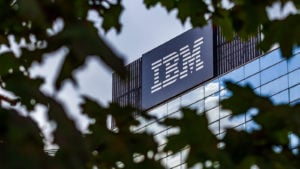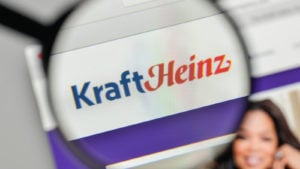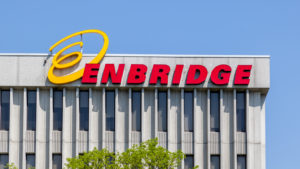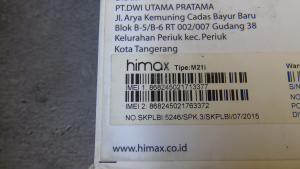With speculation about interest rate cuts seemingly reaching a fever pitch, it’s naturally time to consider high-yield dividend stocks. To be sure, this segment has lost some of its attractiveness over roughly the past two years as the Federal Reserve began earnestly hiking borrowing costs. But with that narrative possibly shifting, it may be time to pivot our portfolio as well.
While it’s not a perfect correlation – nothing ever is in the equities sector – higher borrowing costs tend to cloud passive-income providers, especially high-yield dividend stocks. Basically, when investors seek higher dividend rewards, they usually must absorb higher risks. However, if the yield on U.S. government bonds start rising, a competition effect occurs.
Basically, the government competes with the capital market and let’s face it: for stability, you can’t beat Uncle Sam. But if this narrative will fade due to interest rate cuts, then high-yield dividend stocks should regain relevance.
Of course, we just don’t know what will actually materialize. However, if you’re convinced about dovishness next year, these might be the high-yield dividend stocks that will benefit the most.
IBM (IBM)

Source: shutterstock.com/LCV
What it is: A juggernaut in the technology and innovation fields, IBM (NYSE:IBM) is no stranger to most investors. However, over the past several years, the enterprise known as “Big Blue” faded against younger competitors. Still, that circumstance appears to be shifting as IBM witnessed a (relatively) impressive rise this year, gaining almost 18% in the trailing half-year period.
Relevance: While the company may have been overshadowed, it still levers considerable acumen in the fields of AI and machine learning. As well, it researches and develops applications leveraging blockchain technology. That could be a surprisingly niche growth sector. Per MarketsandMarkets, the segment reached a valuation of $7.4 billion in 2022. By end of 2027, it could generate revenue over $94 billion.
Pros: Right now, IBM offers a forward dividend yield of 4.09%, well above the tech sector’s average yield of 1.37%. Also, the company commands 28 years of consecutive dividend increases, something that management won’t want to give up.
Cons: While an attractive example of high-yield dividend stocks, IBM has a history of disappointing investors.
Public Storage (PSA)

Source: Ken Wolter / Shutterstock.com
What it is: An international self-storage company, the easy-to-recognize brand Public Storage (NYSE:PSA) operates as a real estate investment trust (REIT). Per its public profile, the company is the largest brand of self-storage services in the U.S. While the share price has been choppy this year, PSA managed to gain about 6% since the January opener. It currently carries a market capitalization of $51 billion.
Relevance: With the unique dynamics tied to the Covid-19 crisis, self-storage units may see increased demand in the years ahead as they facilitate downsizing. Essentially, customers can live in smaller residences while storing their bulky possessions in the underlying facilities. According to Mordor Intelligence, the sector should see slow and steady expansion (a compound annual growth rate of 4.37%) from 2022 to 2028.
Pros: Public Storage offers a forward yield of 4.14%. Now, the payout ratio is a bit elevated at 107.97%, though it’s important to remember it’s a REIT. Financially, Public Storage benefits from strong revenue growth and consistent profitability.
Cons: Analysts don’t seem particularly enthused about PSA, seeing a slight decrease in the share price.
Kraft Heinz (KHC)

Source: Casimiro PT / Shutterstock.com
What it is: Leveraging a recognizable brand in the broader food and beverage ecosystem, Kraft Heinz (NASDAQ:KHC) is the third-largest food and beverage company in North America, per its public profile. It’s also the fifth largest in the world, thus benefiting from a massive footprint. In terms of perceived safety ahead of interest rate cuts, KHC makes a strong case for high-yield dividend stocks.
Relevance: Fundamentally, KHC ranks highly in part because it’s one of legendary investor Warren Buffet’s favorites. In November, I stated that shares were undervalued. At the time, KHC traded hands at a forward earnings multiple of 11.34X. Recently, that stat has increased some to 12.33x. The good news? Relative to the median sector value of 15.2x, Kraft Heinz is, at least on paper, a discounted opportunity among high-yield dividend stocks.
Pros: Presently, Kraft Heinz carries a forward dividend yield of 4.37%, well above the consumer staple sector’s average yield of 1.89%. Also, the payout ratio is reasonable at 52.8%. The Oracle is doing Oracle things.
Cons: If you’re looking for a yield-and-capital-gains combo, don’t. Analysts only see 2% upside.
Philip Morris (PM)

Source: Vytautas Kielaitis / Shutterstock
What it is: A “sinful” example of high-yield dividend stocks, Philip Morris (NYSE:PM) understandably carries a controversial profile. As a tobacco giant, there’s no amount of bovine scatology that it can distribute to ameliorate criticism. Hey, if you want brainwashing, you have to go to the best: the Kremlin’s disinformation unit. However, it’s surprisingly relevant.
Relevance: Relevant, really? Haven’t global smoking prevalence declined significantly over the past several years? You’re absolutely correct but as Tobacco Atlas points out, in many countries, prevalence did not change. Worse yet from an anti-tobacco advocacy standpoint, prevalence increased. Another factor that benefits PM as one of the high-yield dividend stocks to buy is the vaping industry. That has skyrocketed in popularity.
Pros: Currently, Philip Morris carries a forward yield of 5.5%, well above the consumer staples sector as mentioned above. Also, the company features 16 years of consecutive dividend increases, a stat management will want to keep increasing.
Cons: PM hasn’t gone anywhere since 2021 and that was when interest rate cuts were the norm.
Verizon Communications (VZ)

Source: Ken Wolter / Shutterstock.com
What it is: A multinational telecommunications conglomerate, Verizon Communications (NYSE:VZ) is a huge player in the 5G rollout. Thanks to its ownership and operation of an extensive network infrastructure – including a robust wireless network that covers a large portion of the U.S. – Verizon is critical for business in the modern age. It also features a massive market cap of over $157 billion.
Relevance: As stated above, Verizon represents a critical cog in the broader telecom ecosystem. Further, many of its individual units enjoy a burgeoning total addressable market. For example, the 5G services sector may hit a valuation of $121.8 billion by the end of this year. By 2028, this segment could soar to over $1 trillion. That comes out to a stunning CAGR of 52.4%, per MarketsandMarkets.
Pros: At the moment, Verizon offers a forward yield of 7.12%, making it one of the enticing high-yield dividend stocks. Also, the payout ratio is reasonable given the generous yield at 57.38%.
Cons: Again, if you’re looking for a yield-and-gains combo, don’t. Analysts on average see upside potential of only 5.5%.
Enbridge (ENB)

Source: JHVEPhoto / Shutterstock.com
What it is: Based in Canada, Enbridge (NYSE:ENB) specializes in the midstream component of the hydrocarbon energy value chain. This segment involves storage and transportation, thus representing the link between the upstream (exploration and production) and downstream (refining and marketing) components. Given its vast network of pipelines that cover thousands of miles across Canada and several U.S. states, it’s an integral part of the North American economy.
Relevance: While there’s much talk about electric vehicles and alternative energy sources, the world continues to run on oil. Without getting into conspiratorial realms, the reality is that much (if not most) of the conflicts in the modern age have at least tangentially been related to oil. Cynically, this harsh framework implies that oil will be with us for longer than expected.
Pros: Companies like Enbridge form part of the backbone of the economy. Thus, it makes a credible case for high-yield dividend stocks. To be sure, Enbridge commands a forward yield of 7.5%. Still, watch out for that ultra-high payout ratio of 130.52%.
Cons: Analysts aren’t particularly convinced with ENB, pegging it a consensus hold.
Himax Technologies (HIMX)

Source: Mamat Suryadi / Shutterstock
What it is: Headquartered in Tainan City, Taiwan, Himax Technologies (NASDAQ:HIMX) is a leading supplier and fabless manufacturer. While it might not be a household name on this side of the Pacific, Himax manufactures display driver integrated circuits (ICs) and timing controllers. These products are vital for television sets, laptops, monitors and mobile phones.
Relevance: Unless you envision a world where people no longer watch TV nor use laptops nor mobile phones, Himax is relevant. More than likely, it’s permanently so. If you want to put some numbers to it, Statista points out that the IC market in total will generate revenue of $443.3 billion by the end of this year. Further, the sector will continue to expand at a CAGR of 7.87% to 2027.
Pros: Himax offers a forward yield of 7.89%, which is massive. It’s also undervalued, carrying a forward earnings multiple of only 9.77x.
Cons: HIMX suffers from recent disappointing performances. That might change if interest rate cuts become a reality but it’s still a speculative proposition.
On the date of publication, Josh Enomoto did not have (either directly or indirectly) any positions in the securities mentioned in this article. The opinions expressed in this article are those of the writer, subject to the InvestorPlace.com Publishing Guidelines.

